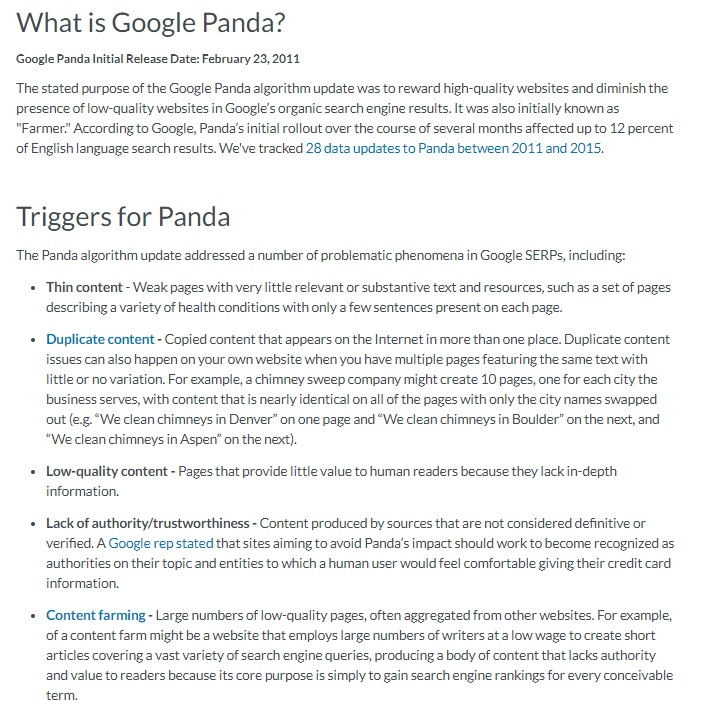Why are people so much into Blogging?
Well, why shouldn’t they be into blogging? When Blogging is just like owning a Media Outlet such as a TV Channel or a Magazine where you share information with your set of audiences using your own blog and earn revenue from ads and other means.
Why not blogging? Even when it is much easier to set up your own blog than it was to set up a TV Channel or a media outlet 15 years ago; or even now.
I mean why not blogging if it gives you a chance to be free and independent while earning a full-time passive income and recognition from your very own successful blog?
Ever since I have understood the blog post concept I think it is one of the best things that a person can do to survive and prosper, and that got me interested to try it on my own and for myself.
Where Did I Learn it?
The best place there is to learn anything in this age of information.
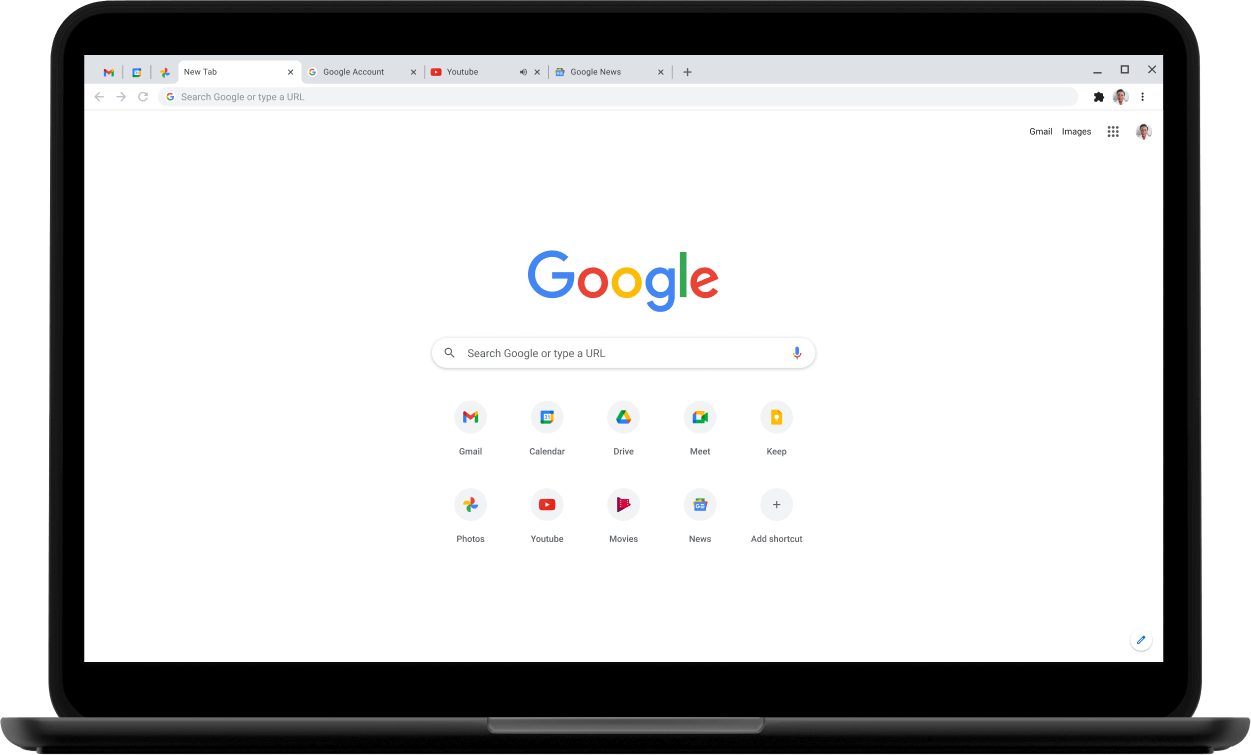
You all know it as ‘Google’.
The place where you probably get to virtually meet and know anyone that really matters and could be of value.
I am fairly new to this. Not to Google but Blogging.
Even though I have been reading blogs for quite some years now; I had no idea what purpose or benefit these blogs served to the publisher.
One day while working for an organization on something totally different I came across some statistics that opened my eyes and in a way changed my world altogether.

1.5 million dollars a month: That much money can change anybody’s world. But sadly nobody ever told me that a shortcut to success exists.
Meet Lowell Heddings
This is what Top Success in Blogging Looks Like!
Lowell Heddings founded How-To Geek, an online technology magazine, in 2007. Fifteen years of hard work got the man where he is today.
Now 15 years is an F&$king long time….
Who has got that long? Who knows who is going to be alive after 15 years? What if we are dead by then?
Peace if we are dead and 1.5 Million dollars a month if we are not. That is the most straightforward answer.
Will making 1.5 Million dollars a month after 15 years going to be doable and easy?
The way I see the world moving may be doable; even more than 1.5 million is doable…. And more achievable than we can imagine right now. Why do I say that?
The secret to achieving a lot more, you will get to know in due time, and just to make sure that you are an early bird, it would be best and in your interest, if you subscribed to my blog now and make sure to follow it.
However, let me make one thing very clear now. It would require excellent knowledge and skills to make it happen and eventually make it easier….
After 15 years… Or hopefully in less time!
The harsh years would be these 15, and the journey to get to that stage.
One important thing to keep in mind. There were probably a little more than 50 Million Blogs in 2007, while today we have more than a Billion.
Some of the most popular blogs niches include:
- Personal Blogs
- Food Blogs
- Fashion Blogs
- Beauty Blogs
- Lifestyle Blogs
- Travel Blogs
- Technology Blogs
- News Blogs
- Political Blogs
And even personal experience blogs.
History of Blogging
Blogging has been there before I even knew the word blog existed. I’m not too passionate about history (as I believe most of it is BS), but it’s always good to research things you are about to step into.
So here goes.
According to the Notre Dame of Maryland University….
Justin Hall, an American journalist, and entrepreneur, famously known as the ‘pioneer’ blogger, published his first blog on his website ‘links.net’ in 1994.
Which still exists in its same old form. I wonder why? Most probably preserving history!
However, according to HubSpot, after his first blog, Justin Hall was termed the ‘founding father of personal bloggers’ by New York Times Magazine.
In December 1997, the term ‘weblog’ came into existence and was first used by Jorn Barger, who created a website called ‘Robot Wisdom’ (Google Search Engines love Backlinks, so here is the Robot Wisdom Twitter & Facebook Profile.)
(I never thought that documenting history would be so much fun.)
Moving forward…
The late nineties showed an uprising in the resources created especially for bloggers, making Open Diary (that launched very recently in October 1998) the most powerful blogging platform.

Open Diary was the first platform to initiate a membership that enabled members of its community to leave comments on the work of fellow members. Exactly what
Do check out this: ‘A Brief History of 9 Popular Blogging Platforms’ something cool that I found on the Mashable Website while researching for my first blog.


The word ‘Blog’ would have died out, but in August of 1999, Pyra Labs launched Blogger, and in the same year LiveJournal and Xanga also came into existence.
‘Vog’ – The First Video Blogs in the 2000s
At 8:18 PM, on January 2nd, 2000, a blogger named Adam Kontras added a video to his text blog to share with his friends and family.

The footage showed him sneaking a cat into a hotel room.
In November, the same year, a professor named Adrian Miles posted one of the first few video blogs terming it a ‘vog.’
By this time, blogging had started making a difference in many lives. Bloggers were finally beginning to understand how to start making money from their blogs. And now, people and businesses had finally started seeing bloggers and blogging as something worthwhile.
Better Things Happened In 2002
The beginning of this century started changing a lot of things. Blogging was one of them.
In Feb 2002, a blog search engine ‘Technorati’ was launched.
In the same year….
I mean, gossip is never a good thing. And I really feel bad for the lady. Just imagine being famous for something like this.
However, what she did was wrong, and I hope she learned some valuable lessons.
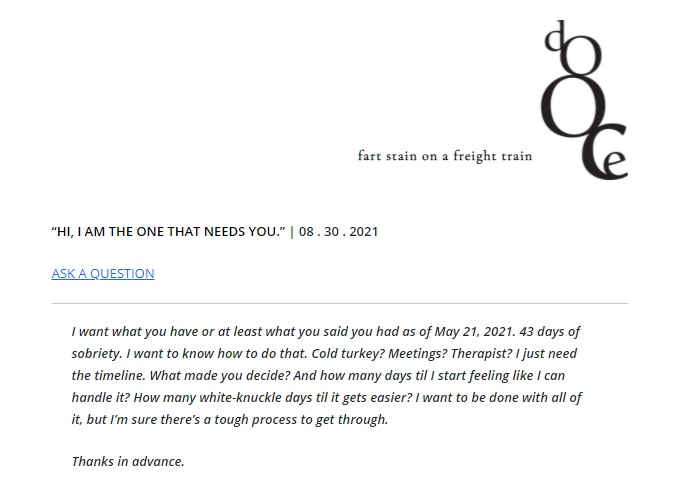
The good news is that her blog is still alive even if 18 years ago she lost her job.
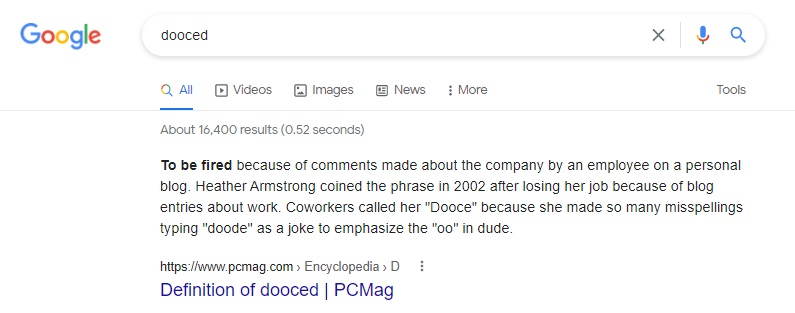
Well, next time one of you bloggers gets dooced, you just got some history lessons about who pioneered it.
My sincere advice is that you guys should behave, at least till you dont need a job.
Ok… then the same year….
It was primarily mothers blogging about parenting to educate and support their many followers.
And within a decade, there were almost 4 ‘Million mommy blogs in North America alone!’
What happened to the ‘Mommy Blog?’
Back to 2002 – The Blogging Uprise.
19th May 2002 – The Date Newsweek Predicted
Newsweek predicted that blogs will takeover conventional media when a website called InstaPundit, started drawing thousands of readers and the numbers kept on growing.
The prediction almost came true just before year-end.
In August, Blog Ads was launched by Pressflex LLC.
And then it also retired… Gracefully!
\”When our ad service for bloggers launched here in the spring of 2002, Mark Zuckerberg was a high school senior and Barack Obama was in the Illinois State Senate.\” – Blogads
The super-loud Gawker Magazine from New York which was the first among gossip blogs also got launched in December 2002 but ceased operations in August 2016 after fighting a high-profile legal war.
Then came…
2003 – The Year of Adsense, WordPress, & TypePad
And the boost continued. In February of 2003, Google bought Pyra Labs.
June 18, 2003: In under a year of Blogads launch, Google introduced AdSense, which started getting bloggers relevant ads on their preferences.

Being able to fetch advertisements and revenue for their blogs was a breakthrough for bloggers. AdSense initiated the evolution where big brands started sponsoring blogs that went with their target audience. Many bloggers even started getting free products in exchange for a review or endorsement.
Yup.. those must be some good days with so little competition.
Blogging, which people started as a hobby, had now turned into a business and a full-time income.
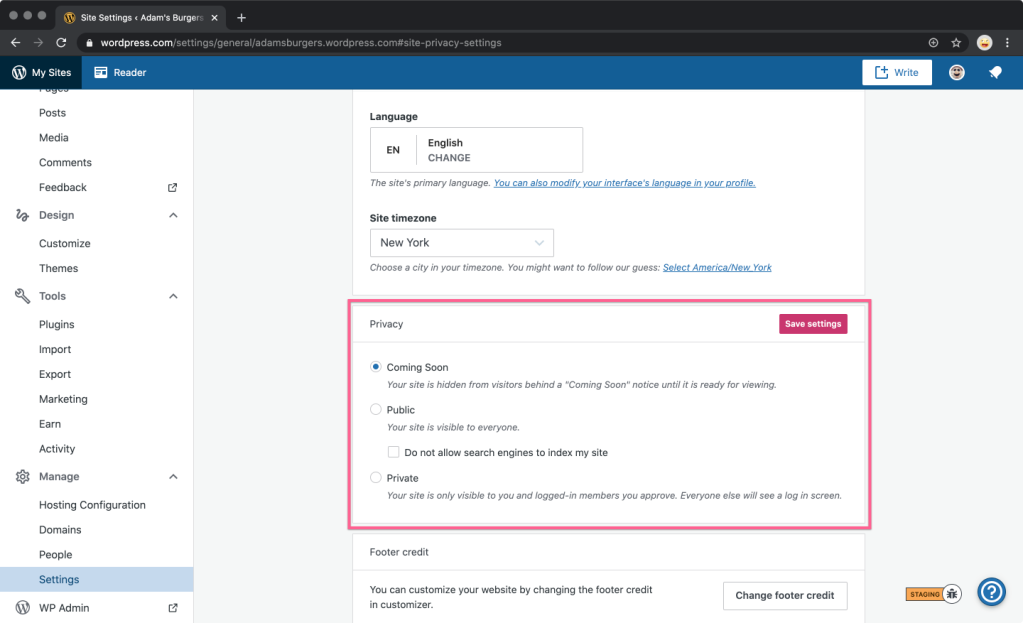
Soon, in the same year major blogging platforms, WordPress and TypePad were launched to provide support, along with better blogging options for the rapidly growing number of bloggers.
Even the concept of live blogging is also thought to have started in 2003
Guardian was among the first to start live blogging while the 2003 prime minister’s question time took place. The BBC reported this new act as “live text” and has been used many times during sports occasions.
The same year many mainstream media outlets started urging their column writers to initiate cyber journalism on the side; which soon made seasoned journalists follow blogs for their viewpoint and beat source.
This shift created the foundation of bloggers becoming members of the press and mainstream media in the decade’s second half.
2004/2005
The Blogging Scandal That Shook American Politics
In 2004, another Armstrong happened. (Remember the lady who got fired for gossiping?)
The second person to get ‘dooced’ was a congress aide and blogger, Jessica Cutler who was also an employee at the Russell Senate Office Building, decided to follow Armstrong’s footsteps.
The only difference was that Jessica tried to keep her identity secret. But.. her Blog posts soon got interrupted!
So, in short, Jessica got caught, got fired, got sued….
Got all over the news!
Got famous… very famous till finally she…
…became a Playboy model.
Only in America!
Anyways my understanding is that blogs are meant to share the writer’s personal experiences and not somebody else’s personal life.
2005-2009
THE BEGINNING OF VIDEO & MICROBLOGGING
Hmmm, so even though the first video by Adam Kontras appeared in his blog post published on January 2nd, 2000, it took good five years for videos to finally become a thing.
In February 2004, (just a year before) one of the first video bloggers (a professional videographer), Steve Garfield declared 2004 to be the “year of the video blog.”
However, it turned out that instead of 2004, 2005 became the year of the video blog.

In 2005, YouTube was launched….. but probably to become a dating site.
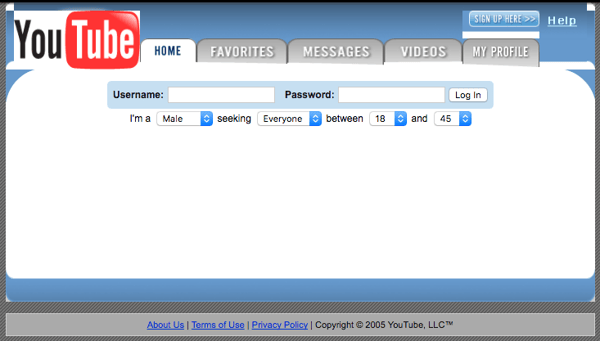
Here, singles would introduce themselves while stating their romantic criteria using videos.
Jawed Karim was one of the three people that founded YouTube. The other two were Chad Hurley and Steve Chan.
In around June 2005, (sanity prevailed) YouTube started focussing on general video uploads; gradually with some more positive changes its online users began to grow.
Now, since the writers had enough resources to ease their publishing processes, developers now started paying attention to the needs of other kinds of content creators.
After developers, now even people in the White House had started showing respect and much-deserved recognition to bloggers. And finally, allowing the first blogger to step into the White House as a reporter for the first time in history.
And then…

Arianna Huffington, Andrew Breitbart, Kenneth Lerer, and Jonah Peretti launched the Huffington Post on May 9, 2005, as an alternative to news aggregators such as the Drudge Report.
Prior to this, Arianna Huffington hosted Ariannaonline.com. Her first bang on the Internet was Resignation.com, which asked for President Bill Clinton to resign and was a place that reunited conservatives opposing Clinton.
The Huffington Post was launched as a single case study called ‘political forum’ but by 2007 it got declared a ‘group blog’ by the Washington Post.
This was the time when probably mainstream media news reporting and blogging merged into one.
The Huffington Post is primarily syndicated content and original content contributed by staffers, columnists, and unpaid bloggers. However, when you visit the website, you’ll be greeted with a page of global news headlines, giving the impression that it’s a news organization. Nevertheless, it is currently one of the highest-profile content libraries.
The question of whether these newer platforms were newspapers or blogs has been raised ever since. And we still await a clear answer.
2006: The Year Of Micro Blogs & Rules

On March, 21st 2006, Jack Dorsey CEO and co-founder of Twitter sent out the world’s first tweet
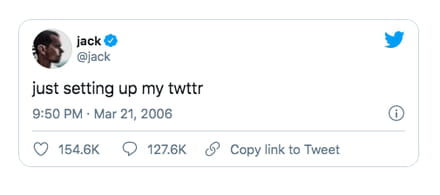
Twitter introduced microblogging of 140 characters or less. Microblogging allowed bloggers to share stories, news, and other content types in the smallest possible format.
2007: Tumblr was Born
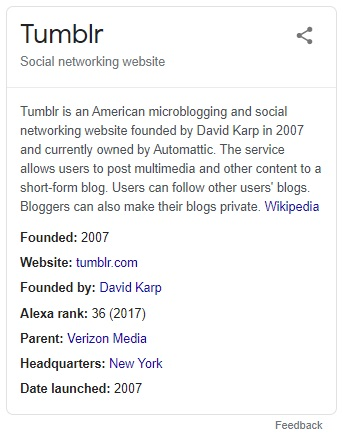
Tumblr was another blogging platform that encouraged users to be brief, got launched in February 2007; to add to the growing popularity of microblogging.
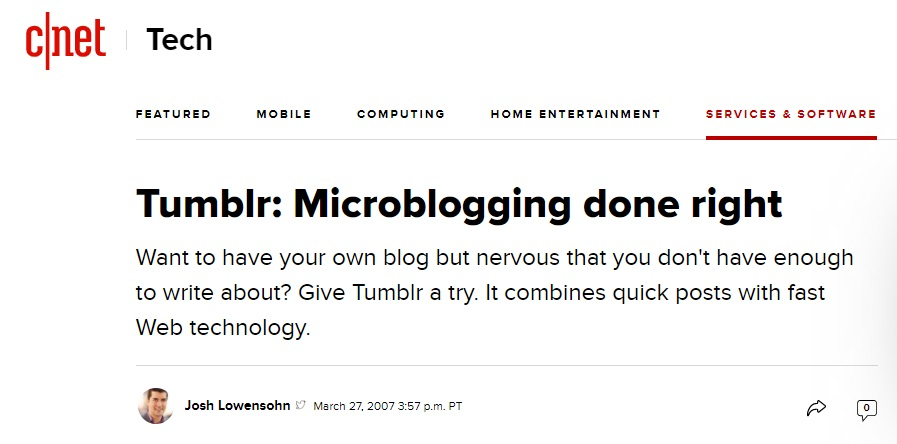
“who feel they may not have enough content or time to write a full blog, yet still want to write and share links and media.” – Josh Lowensohn Former CNET Reporter
The Blogosphere Evolution
Blogger’s Code of Conduct
However, the advent of brief, real-time sharing of information also gave rise to intense communication, resulting in many random unpleasant tweets and deeply offensive comments.
After a friend of a new media mogul, Tim O’Reilly, received threatening comments on her blog, Tim in March 2007 proposed a Blogger’s Code of Conduct.

The following were the rules:
- Take responsibility not just for your own words, but for the comments you allow on your blog.
- Label your tolerance level for abusive comments.
- Consider eliminating anonymous comments.
- Ignore the trolls.
- Take the conversation offline, and talk directly, or find an intermediary who can do so.
- If you know someone who is behaving badly, tell them so.
- Don’t say anything online that you wouldn’t say in person.
It displayed the distance blogosphere had progressed since the days of Open Diary in 1998.
Commenting on blogs had become less of a novelty and more of a source of contention.
The Huffington Post finally followed rule #3 of the code of conduct in 2013, prohibiting random commenting on its content and started requiring commenters to link their feedback to their Facebook profile.
2009-2011
White House Blog | Julie & Julia | Google Panda

Except for a bit of development in January 2009 which initiated the White House Blog, most of these years didn’t offer any significant advancements in blogging or among bloggers.
Near the end of 2009, a food blogger Julie Powell became so successful that she published a book using all the work she had done online.
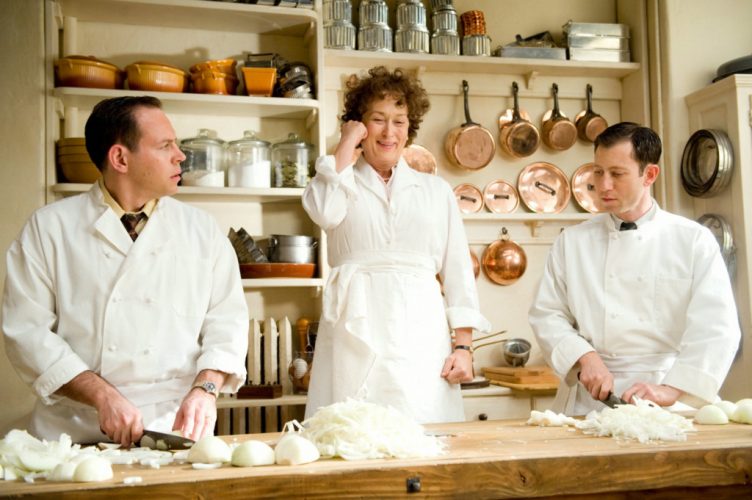
The book turned into a film, Julie & Julia, starring big-time celebrities like Meryl Streep.
This first popular culture reference to the success of bloggers began inspiring others. Soon 11% of the bloggers were reported by Technocrati to be earning a full-time income just from blogging.
Then in 2011…

In 2011, many bloggers were impacted when Google made some changes to its algorithm.
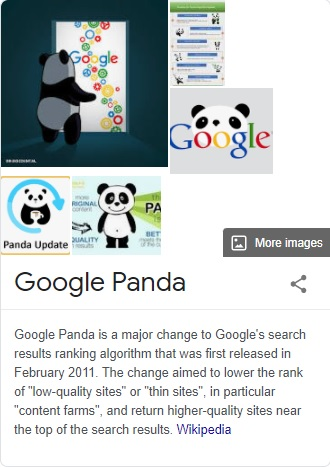
Its objective was to bring down google rankings of low-quality content sites or, as Moz described, these sites as having ‘thin content.’
Lack of inbound links was one of the reasons for low quality. For those non-bloggers reading this blog post, inbound or backlinks are hyperlinks on different websites and webpages that advance the reader and traffic to our blog or website.
People usually add hyperlinks within their content to give reference and credit to the other website from where they took that specific information.
For example, in the last paragraph where it says, \”sites or as Moz described these sites as having ‘thin content.’ \”Moz is colored blue because it has a Hyperlink installed that if clicked would take you to Moz’s website page that talks about Google Panda and thin content.
By inserting the link to Moz’s page, I have provided the website www.Moz.com a backlink from my blog site www.thebloggingbox.com.
Do check out this: ’34 Inbound Link Building Strategies to Help Your Site Rank Higher’ something cool that I found on the HubSpot Website while researching my first blog.
Now, when a website does not have enough backlinks leading to it, Google algorithms evaluate it as less credible.
2012: The Birth Of Medium
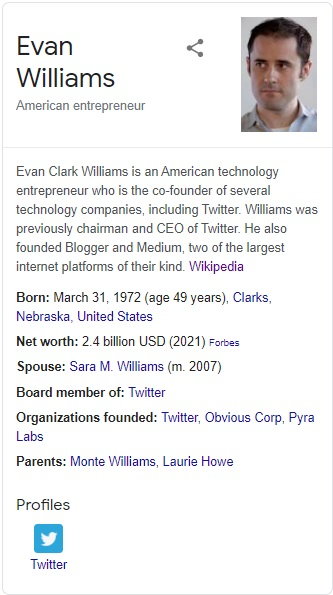
Evan Williams the co-founder of Pyra Labs in August 2012 created Medium

Which is currently, one of the latest blogging platforms.
\”Your daily news reimagined, straight from the people who are making and living it. Discover and follow your favorite writers and the stories that matter to you every day.\” -medium.com
Like most other blogging platforms, Medium allows users to create and publish original content. On the other hand, Medium continues to blur the line between journalism and blogging.
A Step Forward In Decentralised Content Development
‘Medium’ came as a concept that allowed users to share their already published work. It is not like sharing links on social platforms, where only a tiny portion of the content is shown.
It allows the whole text and images of the work to be shared on a different site, with the original author and source credited. And if it sounds ‘confusing or pointless’ to any of you readers, read why Medium works by Sam Mallikarjunan, who clarifies the advantages of this phenomenon.
Medium has around 3 million people reading, viewing, and sharing content. It means that if you don’t have that much reach already (most of you don’t, or if you did, I would be reading you), that is a great place to share your content and get some following and traffic.
2012: The Launch of LinkedIn Influencers Program
LinkedIn’s Influencers program, which recruited notable business figures to guest blog on LinkedIn’s publishing platform, launched the same year as Medium. In 2014, the venue was made available to all LinkedIn members.
The difference between LinkedIn’s platform and Medium is mainly that in LinkedIn, users cannot re-post entire bodies of work in the same seamless manner as they can on Medium.
However, it provides people another way to share original content with a much larger audience than they would have gotten on their domains.
2017: The Latest Development
Those who were behind creating WordPress announced the launch of the .blog domain.
So, guys, the most remarkable fact about this .blog thing was that even though the creators of WordPress built it, we as users don’t require to use WordPress to have a blog on that domain.
Adrio Strange from Mashable has clearly stated, \”the domain registrations are open to anyone, regardless of publishing platform.\”
What Will Happen Next?
I don’t know about you, but after learning about blogging history, I’m looking forward to seeing what the future of blogging holds; in fact, I have decided that my next blog would be on that topic.
Of course, the fact that I work in the field of blogging helps. But I’m not the only one.
When you consider the current state of blogging, this field makes a lot of sense.
Blogs are an essential part of marketing and content strategy, and they have proven over time to boost lead generation up to 700% for some businesses.
What our career in blogging looks like will be determined by how blogging evolves, and I encourage all marketers, corporate, small existing business owners to blog on behalf of their respective brands.
Are you interested in learning more about the future of blogging and marketing in general? Take a look at the most recent HubSpot’s State of Marketing Report.
It may look like a lot of work initially, but if I have learned anything from this history and the evolution of blogging, then it is that it is here to stay and grow.



